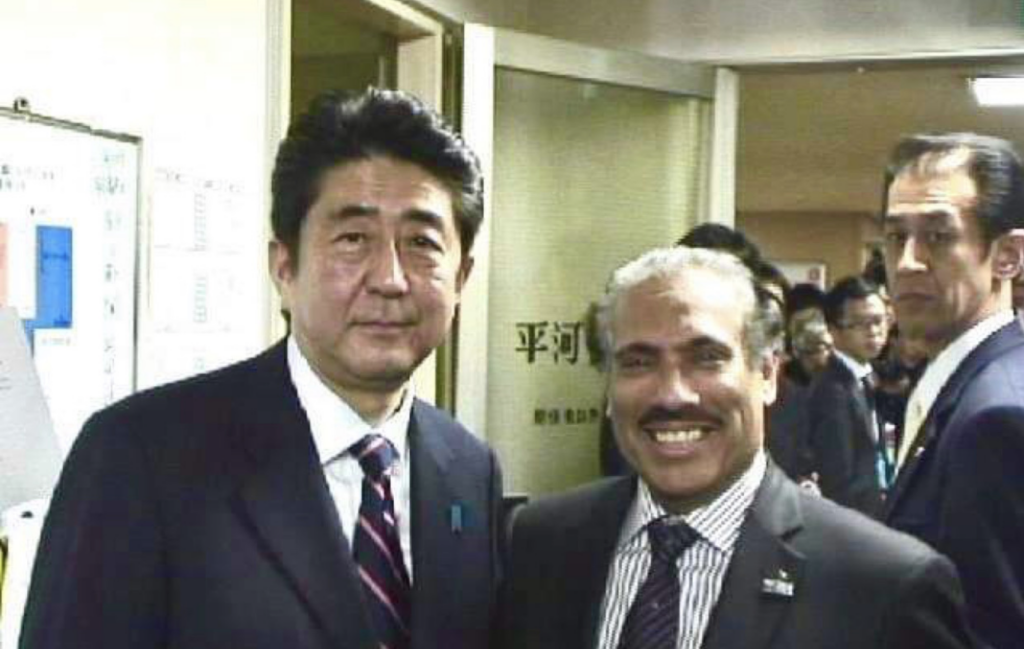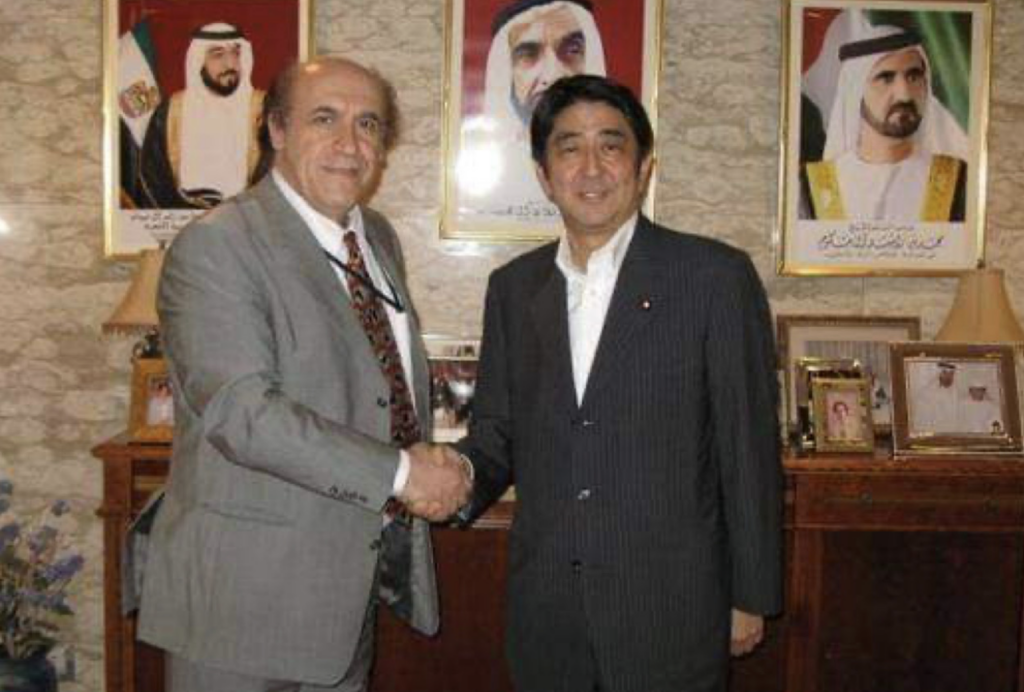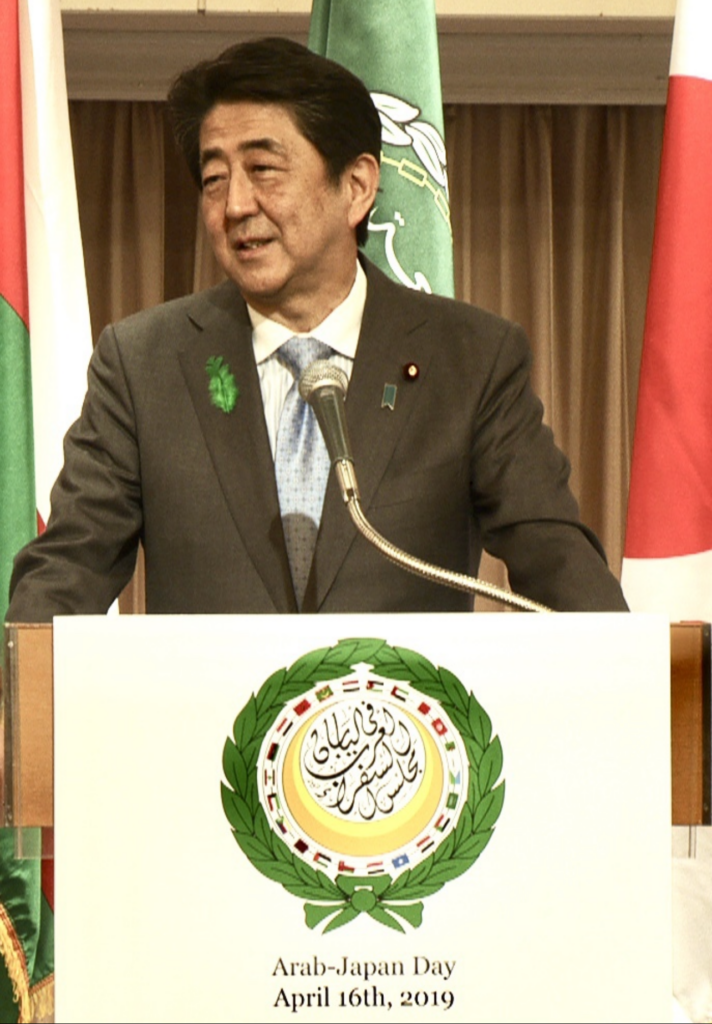Khaldon Azhari
TOKYO: Saturday, July 8, marked the first anniversary of the assassination of former Prime Minister ABE Shinzo, who was shot while campaigning in Nara in central Japan.
The news stunned the country where people thought political assassinations were a thing of the past and where extreme violence is, fortunately, rare.
I came into contact with Prime Minister Abe many times during my reporting, and he was quite a cheerful man who smiled often.
The first time I met him was at a press conference in my capacity as Vice President of the Foreign Correspondents’ Club of Japan in Tokyo when he was the Secretary General of the ruling Liberal Democratic Party. The day’s hot topic was North Korea, and he handled the questions very smoothly.
The next close-up meeting was at a meeting concerning Arab-Japan bilateral relations. I interviewed Abe, who said he was planning to return to politics after quitting on September 12, 2007, due to health reasons. About a month later, he led the LDP to an election victory and became the prime minister again.
I remember he reluctantly accepted my request for an interview, but he consented after I told him that the report was for a news agency in the UAE and not for publication in Japan.
Then, UAE Ambassador Saeed Ali Alnowais called me around midnight on the day the LDP swept back into power with a landslide election result. The ambassador asked me to come to LDP headquarters to cover a meeting.
In about 10 minutes, I was there. We entered the hall where the LDP leaders were hanging the traditional red roses on the names of the general election winners for the House of Representatives. Abe came to greet the ambassador, and I grabbed an exclusive photo and quotes published in the UAE and Arab media. It was Abe’s first courtesy meeting with a foreign diplomat after his win. It is a cherished memory.
Abe had good relations with the Arab countries and attended many Arab events in Tokyo. He visited Saudi Arabia and the UAE often and stayed once on a lengthy visit beyond the original program of the tour to the Palestinian territories.
Regardless of his politics, Abe was an able statesman who led Japan for a record years held by any past prime minister in power.
It’s still puzzling to some Arab diplomates why he could not capitalize on his close relationship with Russian President Vladimir Putin to broker a peace deal in the Ukrainian war. He had over 20 summit meetings with Putin but was absent from the diplomatic activity that followed Russia’s invasion of Ukraine.
After his second resignation on August 8, 2020, “because of ill health,” Abe was no longer prime minister but remained a very important political figure in Japan. To be struck down in such a cruel and untimely assassination attack severely affected Japan and international diplomacy. He was still a huge figure behind the political screens in Tokyo.
Abe has a somewhat mixed legacy in Japan, but for the outside world and particularly for the Arab world, he was a leader who was missed and who still had so much to offer.





